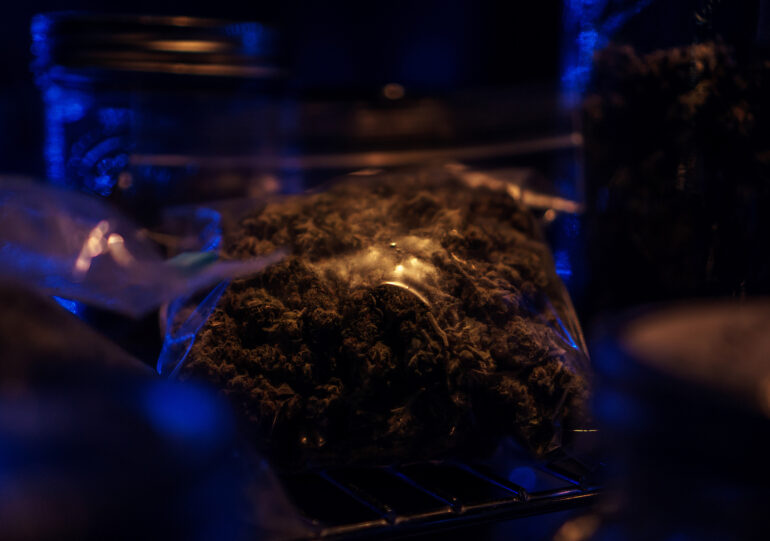Delta-8 THC is legal in most states when it’s sourced from a hemp plant, but that doesn’t mean you can’t get in trouble for using it.
If your employer or parole has a drug testing policy, you might be worried that even delta-8 use can show up on your results. Unfortunately, this is the case, because drug tests can’t tell the difference between the different types of THC – they’re just not specific enough.
So if you’ve been using delta-8 and you have a drug test coming up, will you fail? How long will it stay in your system? And is there anything you can do about it?
Does Delta-8 THC Show Up in a Drug Test?
Delta-8 THC will show up in a drug test, so you can fail a drug test if you’ve been taking delta-8.
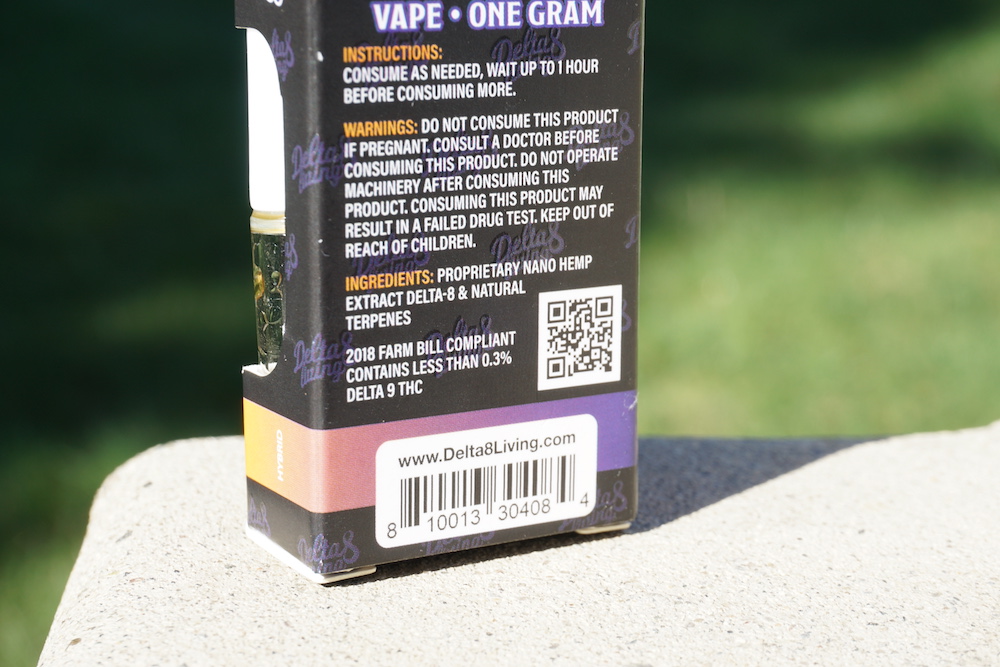
It might surprise you to learn that delta-8 THC is picked up by a drug test, which should theoretically be looking for delta-9 THC instead. However, the crucial thing to understand is that delta-8 THC and delta-9 THC are very similar, with the only difference between the two being the position of the double-bond.
So the short answer is that delta-8 THC will show up on a drug test – which is theoretically looking for delta-9 THC – because the test can’t distinguish between the two. The real answer, though, is that the most common drug tests don’t even look for THC itself, it’s really about what your body processes it into.
Why Delta-8 THC Shows Up in a Drug Test
The reason delta-8 THC really shows up in drug tests is because the most common tests look for the metabolites of THC, not THC itself. Although the metabolites are different, they aren’t different enough for one to be detected by the drug test and the other not.
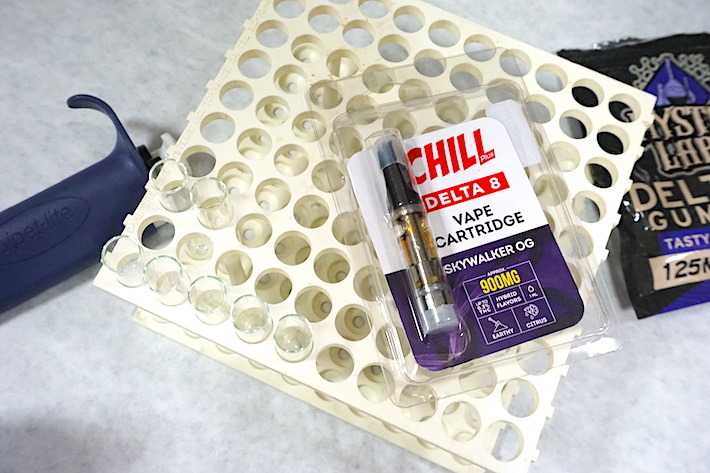
Dr. Abraham Benavides, medical cannabis coach and consultant, explained to us that, “Most drug tests are federally-standardized urine drug screen (UDS) panels looking for the metabolite of THC, called THC-COOH. Our body starts to turn THC into THC-COOH as soon as it hits our liver.”
In other words, while you may be given a different type of test, urine tests are by far the most common, and urine tests don’t look for the actual THC. Both delta-8 THC and delta-9 THC are processed into the 11-OH- (pronounced “11-hydroxy-”) versions of THC by the liver (i.e. 11-OH-∆8-THC or 11-OH-∆9-THC), and they are both excreted as THC-COOH, albeit slightly different versions. In practice, the metabolite of delta-8 looks exactly the same as the metabolite of delta-9 as far as the test is concerned.
This is particularly problematic because THC-COOH can be detected for quite a while after you last consumed, as Dr. Benavides explains:
“THC is rapidly metabolized, but the metabolite THC-COOH itself can take a very long time to finally leave the system because our body does not perceive it as harmful. It has the longest testing window of all the drugs on the panel. This is why drug screens are very flawed for distinguishing recent or any past cannabis use from people with actual substance use disorders.”
How Long Does Delta-8 THC Stay in Your System?
Delta-8 THC stays in the system for about as long as delta-9 THC, so if you’re a daily user it would likely take two to three weeks before you could pass a standard drug screen. It’s unlikely – though possible – that it would take a month or more.
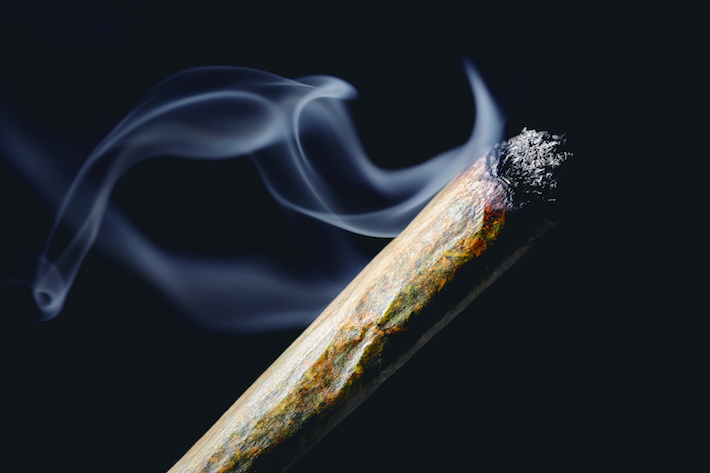
While the data isn’t as clear for delta-8 THC, all indications are that it would stay in your system for about as long as delta-9 THC. This means that the evidence on how long marijuana stays in your system applies here too.
Overall, despite uncommon cases of regular marijuana users failing drug tests over a month after their last use, most of these cases come from older studies which use outdated tests, stricter cutoffs and sometimes can’t guarantee that participants didn’t smoke during the study. It is certainly possible that a regular (i.e. multiple times a day) consumer would fail a drug test even after a month of abstinence, but at the standard (50 ng/mL) cutoff for a “screening” test it isn’t very likely after three weeks.
Dr. Benavides commented that, “There are less than a handful of participants in these studies that have taken as long as 77 days to consistently test negative. These cases are outliers but they do exist. Overall, the research has also shown that it is possible to test negative, then positive, and then negative again.”
If you smoke less frequently, then you won’t have to wait as long. For a single use, your pee will probably be clear within a few days, but if you smoke a couple of times a week it might take closer to a week for you to pass a drug test.
Is There Anything You Can Do If You Have a Test Coming Up?
The best and most effective way to pass a weed drug test is to not use any THC for a few weeks before the test. If you can’t pass legitimately, it will be difficult to fool the test, but you can try to dilute your urine by drinking water.
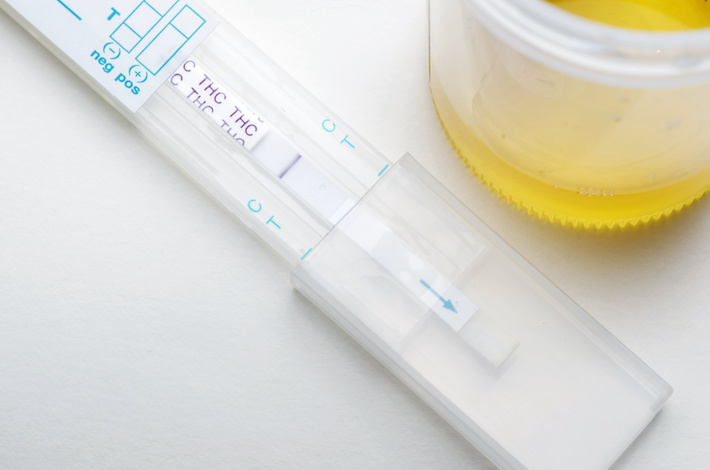
RELATED: What Is the Best Defense for a Positive Drug Test?
We spoke to Dale Gieringer, PhD, a drug testing expert from California’s branch of NORML, who commented that, “Flushing with water and/or diuretics may be as effective as any of the detox kits on the market” and added, “Urine substitution is the most popular and effective way of cheating on drug tests.”
However, the reality of the situation is often a little more complicated. People conducting drug tests are well aware of these techniques and know what to look for. Joe Reilly, a drug testing consultant, explained to us that:
“Specimen collectors take their job seriously looking out for signs of adulteration or substitution including checking specimen temperature, observations, and checking smell and color of the urine. Certified laboratories do specimen validity testing to determine substitution or adulteration.”
He pointed out that most of the commercially-sold detox products don’t work, and in most cases ultimately depend on diluting your urine:
“There are many products available that claim to get a donor to clean negative results. Some of these may work and get past the lab, some will not. In all cases these products are advising the user to drink large quantities of water prior to testing in order to get to a dilute specimen. Synthetic urine products are often successful in getting by the lab, [but] the specimen collector can often determine the urine is synthetic and this prevents this specimen from even getting to the lab.”
So your prospects for cheating the test are pretty slim. The best chance you have – other than not using for a few weeks – with some plausible deniability if you’re caught is to dilute your pee on purpose. Dale Gieringer wrote a blog post for NORML detailing the best approach: drink a liter or two of water (remember that you should not drink more than one gallon/4.5 L in a day), don’t give your first urine of the day, and take some vitamin B2 to help keep your pee a more natural yellow color.
Switching the urine for someone else’s or for synthetic urine could work, but there are many challenges. How do you switch it when somebody is likely to be nearby while you give the sample? How can you be sure it will be believable as urine if the lab is suspicious?
Either approach could get you caught, but if your pee is too dilute you can pass it off with a shrug and a comment about staying hydrated. If you’re caught switching the urine, there is no believable excuse.
RELATED: Does CBD Show Up in a Drug Test?
Conclusion
Delta-8 THC will make you fail a drug test just like regular THC, so unfortunately if you’ll be drug tested at work, using delta-8 isn’t too wise. You might protest that since it is legal hemp you aren’t doing anything wrong, or you might say that a test which detects the fact you’ve been high in the past week or two isn’t particularly useful, and you’re right. But that doesn’t change anything, unfortunately: there are only really a couple of solutions and neither is great.
The only silver lining is that the tides are changing as we speak.
References (7)
- Cary, P. (2005). Marijuana Detection Window: Determining the Length of Time Cannabinoids Will Remain Detectable in Urine Following Smoking: A Critical Review of Relevant Research and Cannabinoid Detection Guidance for Drug Courts. Drug Court Review, 5(1), 23–58. https://www.ojp.gov/ncjrs/virtual-library/abstracts/marijuana-detection-window-determining-length-time-cannabinoids
- Connors, N., Kosnett, M. J., Kulig, K., Nelson, L. S., & Stolbach, A. I. (2020). ACMT position statement: Interpretation of urine for tetrahydrocannabinol metabolites. Journal of Medical Toxicology, 16(2), 240–242. https://doi.org/10.1007/s13181-019-00753-8
- Grotenhermen, F. (2003). Pharmacokinetics and pharmacodynamics of cannabinoids. Clinical Pharmacokinetics, 42(4), 327–360. https://doi.org/10.2165/00003088-200342040-00003
- Kruger, J. S., & Kruger, D. J. (2022). Delta-8-THC: Delta-9-THC’s nicer younger sibling? Journal of Cannabis Research, 4(1). https://doi.org/10.1186/s42238-021-00115-8
- Niedbala, R. S., Kardos, K. W., Fritch, D. F., Kardos, S., Fries, T., Waga, J., Robb, J., & Cone, E. J. (2001). Detection of marijuana use by oral fluid and urine analysis following single-dose administration of smoked and oral marijuana. Journal of Analytical Toxicology, 25(5), 289–303. https://doi.org/10.1093/jat/25.5.289
- Smith-Kielland, A., Skuterud, B., & Morland, J. (1999). Urinary excretion of 11-nor-9-carboxy- 9-tetrahydrocannabinol and cannabinoids in frequent and infrequent drug users. Journal of Analytical Toxicology, 23(5), 323–332. https://doi.org/10.1093/jat/23.5.323
- Tagen, M., & Klumpers, L. E. (2022). Review of delta‐8‐tetrahydrocannabinol (Δ8‐THC): Comparative Pharmacology with Δ9‐THC. British Journal of Pharmacology, 179(15), 3915–3933. https://doi.org/10.1111/bph.15865
